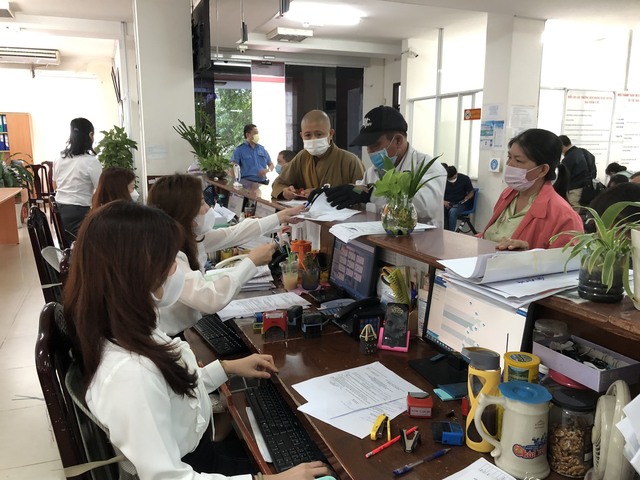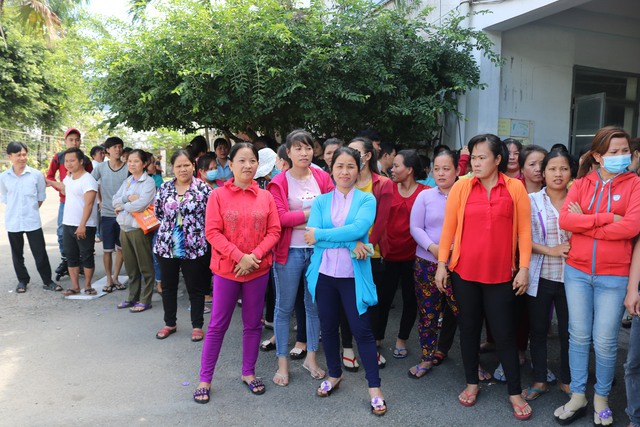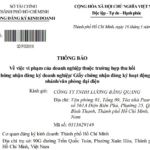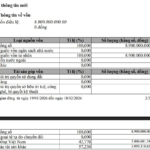At the recent dialogue between businesses and the HCMC Department of Social Insurance, Mr. Nguyen Hoang (representative of Tan Quoc Hung Co., Ltd. in Binh Tan district, HCMC) reflected that since the outbreak of COVID-19, businesses have faced numerous difficulties in production and business activities.
At the end of each month, in addition to paying social insurance, health insurance, and unemployment insurance premiums, enterprises also have to pay salaries to their employees (which should be prioritized) and other fees.
In reality, not all businesses have sufficient funds or reserves to cover these payments; therefore, they may not intentionally evade social insurance payments but rather are unable to make timely payments as required by the Social Insurance agency. This has led to late payment interest calculations, further exacerbating the difficulties faced by businesses.
“The Social Insurance agency should consider supporting businesses by extending the deadline for social insurance, health insurance, and unemployment insurance payments from the last day of the month to 15-20 days or even a month later. Simultaneously, the calculation of late payment interest should be extended from 30 days to 60 days or more, giving businesses more time to secure funds,” the representative suggested.

Enterprises and employees complete social insurance procedures at HCMC Social Insurance
The representative of T.N Co., Ltd. (District 10, HCMC) stated that the company operates in the field of providing management, maintenance, repair, installation and construction services for power plants, energy projects, and M&E systems. Due to the nature of its business, the company often faces financial challenges due to delayed payments from partners, which in turn leads to slow capital injection from the group and delays in social insurance payments.
To address this issue, the company has established a separate fund to cover expenses related to illness, maternity, occupational accidents, and occupational diseases for urgent cases, ensuring the peace of mind of its employees. In the event that an employee resigns, the company will pay all insurance premiums, including late payment interest, as stipulated by regulations, so that the Social Insurance agency can close the employee’s social insurance record and ensure timely settlement of social insurance and unemployment insurance benefits.

Enterprises need to pay monthly health insurance premiums for their employees so that their cards remain valid
Based on the reality of their situation, the company representative urged the Social Insurance agency to relax penalties for businesses facing genuine difficulties but showing a proactive attitude, in order to protect the rights of their employees.
Specifically, the company representative proposed allowing enterprises to make monthly deductions and extend the period for receiving health insurance benefits; extend the grace period for late social insurance, unemployment insurance, and health insurance payments to 90 days; and permit enterprises to clear debts for individual employees so that they can receive related benefits.
In response to the proposals made by businesses, the HCMC Social Insurance Department stated that the Social Insurance agency is a state management agency responsible for implementing social insurance and health insurance policies; therefore, it has no authority to resolve late payment issues for businesses.
Currently, health insurance card data is managed centrally and linked to revenue data. When a medical facility accepts a patient’s health insurance card, it retrieves the card’s information from the Health Insurance Appraisal System Data Reception Portal to determine its validity. Therefore, businesses must pay health insurance premiums on a monthly basis to ensure that their cards remain valid.
In the case of businesses that delay social insurance, unemployment insurance, or occupational accident and occupational disease insurance payments, if an employee meets the conditions for receiving social insurance benefits or terminates their labor contract or employment contract, the business is obligated to pay all social insurance, unemployment insurance, and occupational accident and occupational disease insurance premiums, including late payment interest, as per regulations, so that the Social Security agency can verify the social insurance record and promptly settle social insurance and unemployment insurance benefits for the employee.
If an enterprise has not made full payments, the social insurance record will be verified up to the date when social insurance, unemployment insurance, and occupational accident and occupational disease insurance premiums were paid. Once the overdue amount has been collected, the Social Security agency will issue a supplementary verification on the social insurance record to protect the rights of the employee.












